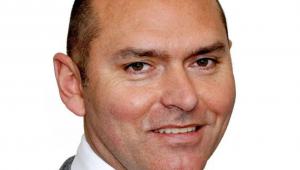Speaking to Public Finance, NHS Improvement economics director Chris Mullin said introduction of staff agency rules from last October, including price caps for all agency staff, had begun to control spending.
According to the latest figures provided by the watchdog, agency expenditure controls have saved £290m between October and February, compared to the expected cost without action. Following introduction of caps on agency spending last November, the limits were reduced in both February and April.
Quarterly agency spend across all trusts was 5% lower following the introduction of the agency rules, down from £951m in three months from July to September to £902m in the three following months. Total agency spending of £1.5bn from October 2015 to February 2016, was an average of 13% from a monthly peak of £331m in July.
Overall, growth in spending had slowed from 25% annual increases in the last two years – and a forecast 30% in the first six months of 2015/16 – to 11% in the quarter from October to December 2015.
Mullin stated that this is a dramatic turn around, particularly given that it included winter months when a seasonal spike in agency spending would be expected.
There had been “a bit of a lack of grip” on agency spending in the NHS, he said and the spending controls (which trusts can breach for patient safety reasons) had helped to correct this.
“The financial discipline you might expect in a lot of organisations was just not there in many NHS trusts,” he said. “Various people all over organisations were able to hire agency staff in, at whatever rates, without a proper system of financial control in place.
“There was a real need to sharpen that up across the sector and that is something that the agency rules have helped to do.”
Introduction of the spending controls had raised the issue to the top of trusts, with new controls in place on who can request agency staff, as well as each now having an executive level lead on agency costs.
However, he noted that only around five of the 240 leads across trusts were FDs, as opposed to human resource or nursing leads.
Mullin said he wanted to see more finance director leads. “The good practice is where trusts are able to take a trust-wide approach to agency issue.
“In too many trusts we see as I’ve mentioned a really good focus on nursing and perhaps less of a good focus elsewhere. I think FDs with their finance focus across the trust can help to bring some consistency within the trust, so to take the good practice in some areas of the trust business and start apply them to other areas, both in the back office functions and in the medical functions.”
He highlighted that initiatives such as Lord Carter’s efficiency agenda provided a real opportunity for finance directors to take more of a leadership role in a way he acknowledged they had not been able to do in the past in the NHS.
“I think FDs have that unique cross-cutting financial focus to be able to take the lead and work with their fellow executives to try to bring that about across the whole trust. That’s the key thing we’re trying to encourage.
“This is an obvious area for them – the savings that can help the trusts and the amount of damage that agency spending has been doing to NHS finances.”





















